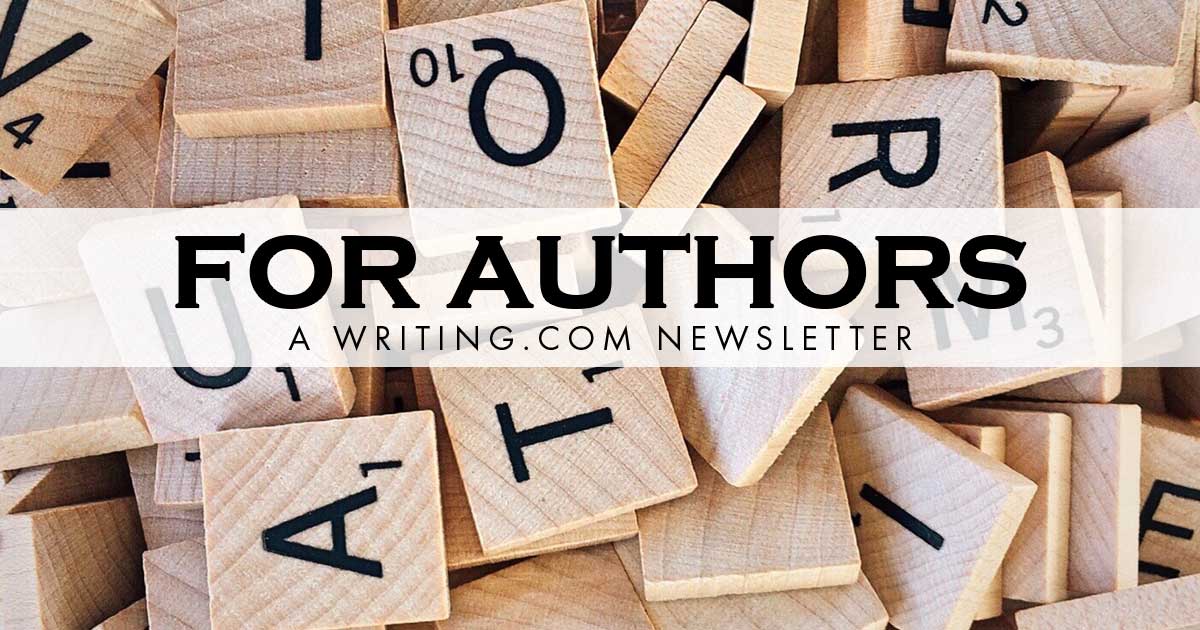This week: Suspense Needed to Make Adventure Work Edited by: Vivian  
More Newsletters By This Editor 
![Table of Contents [#401437]
Table of Contents](https://shop.Writing.Com/main/trans.gif) ![Table of Contents [#401437]
Table of Contents Table of Contents](/main/images/action/display/ver/1709303267/item_id/401437.png)
1. About this Newsletter
2. A Word from our Sponsor
3. Letter from the Editor
4. Editor's Picks
5. A Word from Writing.Com
6. Ask & Answer
7. Removal instructions
![About This Newsletter [#401439]
About This Newsletter](https://shop.Writing.Com/main/trans.gif) ![About This Newsletter [#401439]
About This Newsletter About This Newsletter](https://www.writing.com/main/images/action/display/ver/1709303676/item_id/401439.png)
One component needed in adventure to build, add, and/or continue the readers' attention is suspense. In fact, suspense is needed to create adventure.
|
![Letter from the editor [#401442]
Letter from the editor](https://shop.Writing.Com/main/trans.gif) ![Letter from the editor [#401442]
Letter from the editor Letter from the editor](https://www.writing.com/main/images/action/display/ver/1709303784/item_id/401442.png)
Suspense: A Catalyst for Adventure
The first place to build suspense needed in any writing is the first few sentences. According to Bill Reynolds, The Writer, August 2005, page 7, "A proper opening picks the reader up by his collar and throws him into the story."
The art of suspense means giving the reader something to worry about. In Latin suspendere means to hang, thus suspense, which avoids boredom and losing readers. The reader is compelled to turn pages, the cure for boredom.
Suspense (uncertainly, doubt, anxiety) is a must for all fiction. It should start from the very beginning of a story or novel, should be built into the premise and structure of any fiction writings.
According to William G. Tapply, The Writer, August 2005, the essential elements for suspense are as follows:
1. State story's plot as a question (not in the story itself), one that can be answered yes or no. Make a list of all the possible reasons why the answer could be "no." Those "no" answers become the focus of problems and obstacles - suspense.
2. Create a likable and competent - but flawed - protagonist. (Protagonist = hero, good guy/gal)
If the reader doesn't care about the protagonist, then suspense is meaningless. The flaw or flaws will help create needed suspense because the outcome will be in doubt.
3. Give the protagonist a powerful motivation. He/she must have strong desires, needs, wants. The basic and powerful human needs and drives are essential: Love, ambition, greed, survival are examples. Something vitally important must be at stake or readers can't believe the protagonist would never abandon the quest.
4. Give your protagonist highly motivated antagonists (opponents, villains). All stories need strong villains. Suspense rests on the possibility, even the likelihood, that the villain will defeat the hero.
5. Keep raising the stakes and creating disasters. The formula for building suspense is a bad start that gets worse. Suspense is about problems and obstacles, disasters and failures, small triumphs and big reversals. As Tapply says, "Never make things easy for your protagonist."
6. Choose your story's point of view to maximize suspense. The objective POV allows the attention of the reader to shift from character to character. We, as readers, are allowed to interpret and imagine, to wonder and worry. We are drawn into the story by the changing of point of views from one character to another. The single POV limits only to one character's experiences and thoughts. Anything else is speculation, imagination, and worry.
7. Wind up the ticking clock. Tapply's words express this point best.
Suspense depends on urgency. Build a zero hour into your story's arc:
Antagonists of all kinds: kidnappers, terrorists and assassins, of course
but also teachers and parents and editors, not to mention tides and storms
and seasons create time pressures and constraints.
Your story's momentum might build gradually at first, but soon it
becomes a race against the clock, and it accelerates as it rushes towards
its fateful climax.
The result of the use of suspense in any action/adventure story becomes a riveting story that the reader cannot put down until finished.
I hope I followed these ideas for developing suspense in my story but only a reader can really answer that question. |
![Editor's Picks [#401445]
Editor's Picks](https://shop.Writing.Com/main/trans.gif) ![Editor's Picks [#401445]
Editor's Picks Editor's Picks](https://www.writing.com/main/images/action/display/ver/1709303830/item_id/401445.png)
![Word From Writing.Com [#401447]
Word from Writing.Com](https://shop.Writing.Com/main/trans.gif) ![Word From Writing.Com [#401447]
Word from Writing.Com Word from Writing.Com](https://www.writing.com/main/images/action/display/ver/1709303874/item_id/401447.png)
Have an opinion on what you've read here today? Then send the Editor feedback! Find an item that you think would be perfect for showcasing here? Submit it for consideration in the newsletter!
https://www.Writing.Com/go/nl_form
![Ask & Answer [#401448]
Ask & Answer](https://shop.Writing.Com/main/trans.gif) ![Ask & Answer [#401448]
Ask & Answer Ask & Answer](https://www.writing.com/main/images/action/display/ver/1709303902/item_id/401448.png)
Words from Our Readers
The last editorial concerned writing for children. I'm sorry more people aren't interested in writing good books for youngsters, because more books are needed. If anyone is interested in learning more, please contact me.
hbk16
Indeed writing to children is teaching them some human values.
I like this featured issue that needs further debates. I personally like to write to children.
Great!
I'm not sure what needs further debating, but let me know, and I will try to help.
|
![Unsubscribe [#401452]
Removal Instructions](https://shop.Writing.Com/main/trans.gif) ![Unsubscribe [#401452]
Removal Instructions Removal Instructions](https://www.writing.com/main/images/action/display/ver/1709303960/item_id/401452.png)
To stop receiving this newsletter, click here for your newsletter subscription list. Simply uncheck the box next to any newsletter(s) you wish to cancel and then click to "Submit Changes". You can edit your subscriptions at any time.
|
